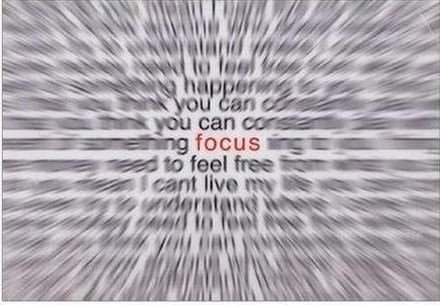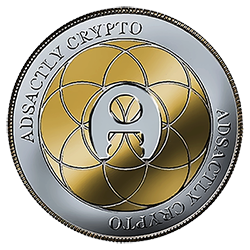ADSactly Personal - Optometrics: A new hope for legasthenia
Optometrics: A new hope for legasthenia
The background history
My son is dyslexic, at least several years ago a reading and writing disability was diagnosed. So he is part of a steady growing group of pupils having major difficulties with reading (according to the latest PISA study by the OECD). This group represents 30% by now! From health insurance and the school we only got help finding a psychologist and also we got a paper granting my son some more time for his tests and exams in school. Apart from that it was hell… probably even more for my son than for us, the parents, having to idly watch our smart little boy despairing and being consumed by the mills of normalization. Math never was a problem; he was even better able than me solving complex mathematical tasks by mental arithmetic. But the test exercises broke his neck. In the end there was an E grade in German and a C- in Math marked in the school certificate, not even talking about the other teaching subjects involving always a lot of reading.

Nevertheless our boy knew more about the things he was hearing than all his age-mates combined (e.g. in a room full of average educated adults, he probably would know more about ichthyology than all of them together). Now what can be done having such a smart little boy sitting at home, getting more and more frustrated about the demands society or rather the school has towards him…
About six months ago, I found by chance a possible solution, shortly after our eye doctor had dissuaded us from a pair of glasses. He never directed us to this solution, no other doctor mentioned it to us, no school officials knew about it (even not in his school specialized in dyslexia), not even the psychologist ever heard about it:
Optometics and an individual visual training (Syntonics)
Possible Reasons:
Lack of movement
Our society is becoming more and more digital. Gameboy, television, computer, etc. are not suitable to properly train the hunter-gatherer-oriented movements and, above all, the visual apparatus.Older siblings
Important stages of development are skipped, to faster learn to walk, as the bigger brothers or sisters do.Not enough time by the parents
Even in the crèche or kindergarten rather static and quiet activities are preferred, because it is easier to handle quiet children instead of a raging gang of them. Children always end up in the crèche because their parents have to work again or even want to.
The result is a lack of developmental steps in motor skills and visualization. For example, while crawling, the brain is trained to balance the wobbly horizon of information provided by the eye. Children who can walk earlier simply have problems with it. Here it can come to a so-called angular deficiency. The consequences are headaches, reading problems, faster fatigue, shorter attention spans, photosensitivity, pain in neck and shoulders.

What does Optometrics do?
Optometry measures not only the eye but the entire visual system with standardized tests and so checks all functions. On the basis of this test, it’s possible to create an individual training, which compensates for possible malfunctions and weak points. The success rate of this therapy is over 80%!
The result of my son's first test:
- No sense for his blind spot
Thus a limited field of view and reduced reaction to things that happened outside of his limited field of view. You have to imagine, you would see the world while carrying blinders.
- no horizon and angular misalignment of the eyes
Holding lines in a book is an almost impossible task
- little sense for the difference between distance and proximity (extremely slow adaptation)
As a result, even small differences in distance are difficult to handle, which makes reading even more difficult.
- Theoretically negligible hyperopia (+1 diopter)
Normally, glasses are not recommended here, but with the problems enumerated so far, reading becomes an almost impossible task
Explained in images
IMAGINEYOUHADTOREADATEXTTHATWOULDLOOKASTHISONE.BUTTHISISEXACTLYWHATHAPPENSWHENYOURCHILDCAN’TREALLYFOCUSWITHHISEYES.
Itcou l’dal solo oklikethi sbu titwo n’tg etan yeasier. Imag ineanad ditionalhy perop tia andyou’l lbeto tallylost.

Explained in numbers
My son had to refocus about 400 times while reading a text with 100 words. A normal developed person would only need about 50 times.
This makes reading about eight times more exhausting than it would be for people without the malfunction. Imagine you read for an hour a day to gather the information needed for your work. For my son this would have been a complete working day of effort, compared to you.
What happened since.
After the initial test, we started an individual therapy a few months ago. First a color therapy, then eye muscle training, synchronization training and finally perception and reading training. Every two weeks we met the trainer and did some new training, also we did individual exercises for about 15 minutes every day. Most of the time we had fun doing it. Sometimes it led to some frustration.
Almost all values are now back to normal range and some even in a very good range.
It even makes him happy to read books. Even his teachers have noticed how much better his reading and reading comprehension have become. It was absolutely unimaginable only half a year ago, that my son would eventually read a book voluntarily. In the meantime this is normality. Of course, we continue the exercises anyway, so that at some point everything is in good range.
THX STEEM! Without my earnings from this blockchain this wouldn’t have been possible
The downside to this therapy is, there is no support for it from anywhere. It is not a medical treatment but is offered by opticians. Doctors do not know about it or they ignore it; health insurance companies do not pay for it (at least in Germany) and you can confidently flout government in such matters. The problem is not big enough, even if the economic damage is already enormous.
The initial tests cost only 50 €. This test series shows if and what can be done. All in all, we invested about 1000 € (1200 $) on the therapy and the borrowed equipment, but OUR SON IS ABLE TO READ NOW. I am sure the health insurance companies have already spent many times more for the psychologist and the ophthalmologist, as well as for the dyslexia school. Nothing of this helped, but what really helped, nobody wanted to pay. Almost nobody even knows about the solution.

Conclusion
If you have a hard time reading, or if you have or know a child who is supposed to be a dyslexic, give them this tip and find an optometrist offering optometry and syntonics. In Germany, there are just under 130 places who offer this. I know little about the availability in the rest of the world. Every Dime invested is worth improving the reading ability and saves you from loosing near half of your lifetime earnings or those of your child.
THX for reading
@pollux.one
all images are CC0 creative commons from Pixabay
Click on the coin to join our Discord Chat

Witness proposal is here:
Go To Steem Witness Page
In the bottom of the page type: adsactly-witness and press vote.

Use small letters and no "@" sign. Or, click here to vote directly!
Thank you!
Nice .. Interesting I did not know
It seems sane, thanks for the tips
Great post
I'm new to Steemit just few hours ago my account get verified.
I thought steemit is just another social website but your posts proved me wrong and I'm so glad I'm your follower.
Your posts are very informative.
And when it comes to eye sight, watching something and reading I've had very tough time due to severe migraine and focusing issue.
But you have covered dyslexia, Optometry very comprehensively.
Parents, mentors and we should have enough knowledge to help our new generation, age fellows and other patients who are suffering form these medical issues.
I would love to quote a saying from Mr. H. Jackson.
"Sometimes the heart sees, what is invisible to the eye"
Welcome to the community :)
Just remember what you now know to give a hint to someone in need one day!
THX for your appreciation and welcome to the Steem Blockchain.
Thank you for welcoming me.:)
Indeed our little bit of information, knowledge or wisdom could be very fruitful for someone, someday.
Tambien soy nuevo en STEEMIT :D
i am also new and inspire by @adsactly
My son has the age of 504 but all the schools seem to really 'pay attention' is the eating aspect. For them RAN means, he will not eat. Period.
However, my child suffered greatly from social anxiety and anxiety and perfectionism. He is the best test taker and score in the top 99% in the country in standard tests. However, the 'value' is C's D's and F's. He will not participate in the class. The group project scared him. He asked me to pick him up regularly. He does not do homework often ...... etc.
I had a hard time with a teacher who gave him a business card on the F report because he did not turn over his notebook. '. Now your mind,
Anyway, I need something to bring in tomorrow that shows that school anxiety and behavior associated with it is a common comorbidity with RAN. The one who communicates with me is key. It makes angry, shouting at him or embarrassing it will not work (like freaking teachers need to know that, right)?
Do we have something I can take with me? Any links you can suggest for me to print?
I am very sorry that I cannot provide any links in english. My whole set of sources is in German language. But I am sure you will be able to find a lot of information when you google "optometrics" or "Syntonics".
THX for your appreciation and good luck for your son!
I read till the very end and I'm touched. There's an almost total lack of awareness on dyslexia in Africa. I can't imagine the kids suffering from this and how much this option would have helped.
I'm happy for your son.
Thx a lot. In a society where almost every knowledge is achieved and demanded by reading, this should be common knowledge. I am also very happy for my son, THX!
To listen to the audio version of this article click on the play image.

Brought to you by @tts. If you find it useful please consider upvote this reply.
THX a lot for the effort!
First, let me say that I consider dyslexia to be poorly defined and often poorly diagnosed. By that I mean that I’ve found that children who struggle with reading (and often writing as well) often have problems with their visual skills that have gone undiagnosed. In particular, they often have binocular vision problems. That is, their eyes don’t work well as a team, even though both eyes have good vision individually (sometimes after correction with glasses) and even though they are capable of passing the rudimentary testing for binocularity that nearly all optometrists will administer.
But put those same children in front of a few pages of print and they either struggle initially, or they begin to struggle after a few lines, paragraphs, or pages, of print. They simply can’t maintain the effort to keep both eyes properly aligned and working together.
So is a child with poor vision skills dyslexic? Well, if they can’t read well, and have struggled with normal reading instruction, they’ll almost certainly be considered to have some sort of dyslexia. Unfortunately, the reading research community has gone down the route where they almost uniformly consider dyslexia to be an auditory problem, not a visual one. But if you fix the vision problem and a “dyslexic” child then easily learns to read, were they dyslexic? See the problem?
Anyway, if your real issue is one of poor vision skills, they here are other issues you might face:
You might have trouble catching a ball (because your eyes disagree on where the ball actually is.)
You might be considered somewhat clumsy, often bumping things or knocking them over unless you’re very careful (because binocular vision is essential to depth perception so you have trouble determining visually how far away an object is.)
You might get carsick easily (because the best way to avoid carsickness is to focus on the world outside the moving car, and you’ll have trouble focusing with poor binocularity.)
Ironically, you might naturally develop a skill that many people find difficult to acquire. That is the skill of translating our three-dimensional world to two-dimensional drawings, as architects, engineers and builders are required to do. This is because you have naturally acquired the ability to locate things, say your coffee cup handle, in your world without being able to rely upon the depth perception most of us rely upon. Instead, you’ll be continuously evaluating lines in the room, the line of your desk relative to the location of the cup, for example, or the lines of the napkin it sits upon. These all provide clues as to how far you have to reach for the cup handle. They’re not perfect clues, but in learning (naturally, without coaching, because no one’s told you that you lack depth perception) to use those clues, you’re also learning to translate 3-D to 2-D and back again which is what architects do all the time (sometimes after intensive training). And it is a fact that many dyslexics gravitate toward the field of architecture.
Try searching for “issues related to poor depth perception” and you might learn even more examples of what a poor reader (a dyslexic?) with a vision issue might face. Also search for “issues related to poor vision skills” as well. I haven’t done so, but you’ll likely find other suggestions as to things that many people now considered dyslexic will face. For example, one vision skill involves picking detail out of background, a visual perception skill. This sort of vision skill is also addressed by vision therapy.
I just realized that until now I hadn’t mentioned vision therapy. That’s a therapy offered by developmental optometrists to address not only poor binocular vision skills, but also other vision skill deficits. I found it to be the answer for many of the children I worked with over the years. Once their vision issues were addressed, teaching them to read became relatively easy to do. Before they were addressed, both student and I would often struggle to accomplish much.
Incidentally, there are some who consider vision therapy quackery. Someone claimed exactly that in response to one of my previous posts. They’re wrong, but no one will convince them of that, including the hundreds of thousands of parents who found it to be an answer to their child’s struggles. Vision therapy isn’t the answer for all reading problems, but the existence today of around a thousand vision therapy centers in the U.S. argues that they are probably providing something of value to parents with children who struggle with reading.
I hope you find this a useful comment.
This is a very useful comment, but it can't answer a question (simply because I didn't ask anything)
You are quite accurate in what you describe. I am aware of most of the information you provided, still I skipped them to not overload the article (attention spans get shorter and shorter these days).
Also I am glad to hear that there are many centers providing help in the USA. In Germany it was quite a struggle to find one.
What its treatment and how our brains treat it? I am really waiting to know the mystery.
There is not much mystery. It was training to correctly sync the brain to the incoming data.
My son can read now, after only half a year of training 15 min daily. After we were told for more than 2 years that our son is somehow disabled.
It's not clear to me.
Amazing post. Explained with so much ease and clarity. I've found this very helpfull.
Thx! Simply remember to give a hint to those who could benefit from it. There are so many diyslexic out there who could find help that way.
This is completely new to me.I had not much knowledge about dyslexia .You have taught us some important things that how find out the baby is dyslexic or not.A lots of people are going to be benefited by this post.Some times it happens that our child is suffering some problem but we are unable to find out the problem.Thank's for sharing this post.@upvoted
THX! Always glad to share knowledge that is not well known and could help others.
It is not possible to find it out for very young children, you will only find it out when they have to read on a regular basis. What you can do at an early stage is to care for enough "motion-time", not just storing them away in a crèche or in front of a television.
Tnx for your advice.
Thanks for sharing, in Germany we also have a debate about this them,
we will see what is going to happen?
Greetings from Berlin
Danke für Deinen Kommentar. Wenn Du möchtest kann ich Dir helfen jemanden zu finden der in diesem Fall helfen kann. Ich bin in jedem Fall extrem glücklich, dass ich diese Möglichkeit gefunden habe und mein Sohn jetzt tatsächlich lesen kann und MAG. Auch wenn die Odyssee beinahe 2 Jahre gedauert hat. Schon krank, dass Psychologe und Spezialschule gefördert und bezahlt werden, aber etwas was wirklich hilft mit keinem Cent subventioniert wird.
Grüße aus Würzburg
Es ist schön Deutsch schreiben zu können.
Hast du eine Homepage?
H.G.Joshi.
Meine w.ayurvedashop.net
Ich habe mir eine Homepage gebastelt, aber sehr kurz danach Steemit gefunden.
Tatsächlich ist mein Name eine Domain ;-)
Wir haben hier übrigens eine fantastische deutsche Community, die Du unter dem #deutsch findest. Und in Discord unter https://discord.gg/ZQaTwzp